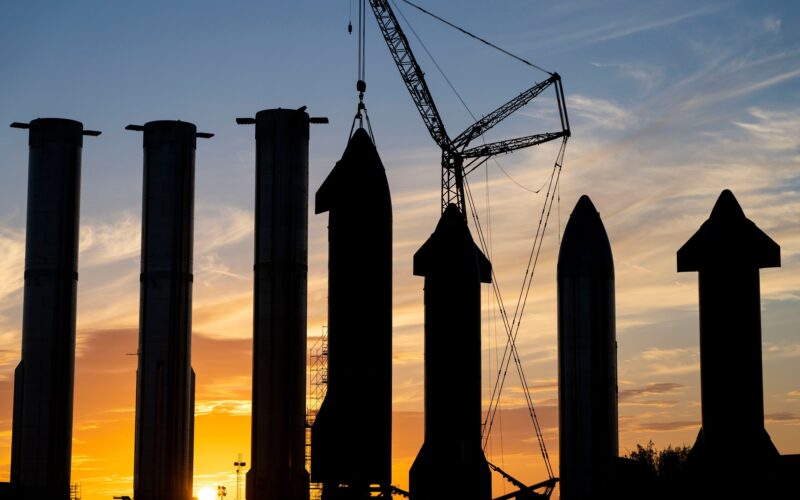The Federal Aviation Administration (FAA) has officially closed its investigation into the SpaceX Starship Super Heavy mishap that occurred on April 20, 2023.
The mishap, which took place during a launch operation from SpaceX’s Boca Chica, Texas site, resulted in the loss of the launch vehicle. The FAA has cited multiple root causes for the incident and has mandated 63 corrective actions that SpaceX must implement to prevent a reoccurrence.
During the ill-fated launch, a structural failure of the launch pad deck foundation caused debris and sand to be ejected into the air. As the vehicle ascended, it deviated from its expected trajectory, prompting the Autonomous Flight Safety System, or AFSS, to issue a destruct command. An unexpected delay following AFSS activation ultimately led to the disintegration of the Starship, resulting in the loss of the entire launch vehicle.
The 63 corrective actions that SpaceX must implement encompass a wide range of improvements, including redesigning vehicle hardware to prevent leaks and fires, enhancing the launch pad’s robustness, incorporating additional reviews into the design process, conducting additional analysis and testing of safety-critical systems and components, particularly the AFSS, and implementing additional change control practices.
The original Starship launch license covered only a single flight. SpaceX must apply for a license modification for additional launches, and as part of that process, demonstrate that it has implemented the necessary corrective actions prescribed following the investigation.
“SpaceX must implement all corrective actions that impact public safety and apply for and receive a license modification from the FAA that addresses all safety, environmental and other applicable regulatory requirements prior to the next Starship launch,” the FAA stated.
Following the closure of the investigation, SpaceX said it implemented a series of critical improvements in response to the mishap.
These enhancements include measures to prevent propellant leaks, which caused the loss of control of the vehicle, expansion of the fire suppression system to counter potential engine bay fires, improvements to the AFSS, and reinforced launch pad infrastructure.
“We learned a tremendous amount about the vehicle and ground systems during Starship’s first flight test,” the company stated. “Recursive improvement is essential as we work to build a fully reusable launch system capable of carrying satellites, payloads, crew, and cargo to a variety of orbits and Earth, lunar, or Martian landing sites.”
The Starship program is particularly crucial to NASA, as it is due to land astronauts on the Moon during the Artemis 3 mission, officially scheduled for 2025.

